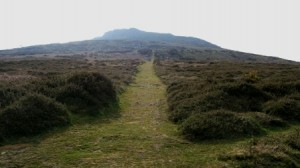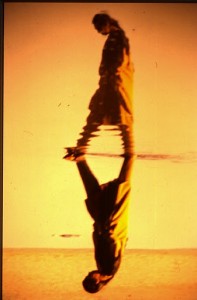The Mundane & The Sublime

Now and then I get emails from writers who are also recovering alcoholics, asking me whether I found it difficult to write once I got sober.
I tell them I did, but then writing’s always difficult. If it was easy, everyone would be doing it (and although some days it feels like everyone IS writing a book, they really aren’t, and among those who are, few do it well).
They tell me they don’t know if they can write without the drugs or the booze, and fear they’ve lost their creative edge.
I tell them my own experience with those fears, and how the truth is that I never wrote anything worth publishing while I was drinking. I usually refer them to an essay I wrote for THE LITERARY REVIEW where I talk about my own struggle learning to write without the dubious assistance of mind-altering substances.
I got another one of those emails just this morning, from a woman whose writing I think is terrific. She was my student for a while and one of those who showed real talent. Now she’s been sober for a little over a year and she’s starting to feel as though life’s pretty boring without “my fiction worlds to swim around in.” She assures me she doesn’t want to drink over it, though. Absolutely, positively, not gonna drink. Nope. No drinking. Really.
I hope not.
For some people – those normal folks who don’t have a drinking problem – a glass of scotch next to the keyboard may in fact rev up the creative juices a bit. It might even do that if you ARE an alcoholic. Briefly. But if you’ve got the addictive gene it will turn on you. That’s a promise. It will wipe out your ability to write. That is, as Tom Waits once said, “the thistle in the kiss.”
I came across a quote this morning from the Sufi master Pir Vilayat Inayat Khan. He said: “To bring the sublime into the mundane is the greatest challenge there is.” The same might also be said about writing. The same might also be said about sobriety.

Both writing and sobriety are journeys; they are not destinations. I have a friend who took a trip to the Tunisian desert, where he walked for several weeks. That’s it. He just walked. One foot in front of the other across the sands. He said the first day was sort of exciting. The next day was disappointing. The third was annoying. The fourth he wanted to get the hell out of there. The fifth he thought he’d die. The seventh he cried. And then something happened. He began, to metaphorically drop things in the sand behind him. Things he didn’t need. The annoyance, the irritation, the desire for something to ‘happen,’ old memories, resentments, desires, the need for control. It was just him, and the desert – all that space and wind and sky and ever-shifting sand. He felt no need to arrive anywhere, and lost his sense of having come from somewhere else. The desert simply was the desert and he was simply there. He began to notice things he’d never noticed before. A lizard. A small desert plant. A shadow. A rock. A cloud. A particular shade of blue, or ochre. Everything came alive and was, he said, holy, worthy of attention and gratitude.
Each day we sit in front of a blank page, each word we follow with another, each moment and mundane detail we honor with our attention, is another step across the desert sands. This is one of the things writing has taught me. This is one of the things sobriety has taught me.
What a beautiful insight.